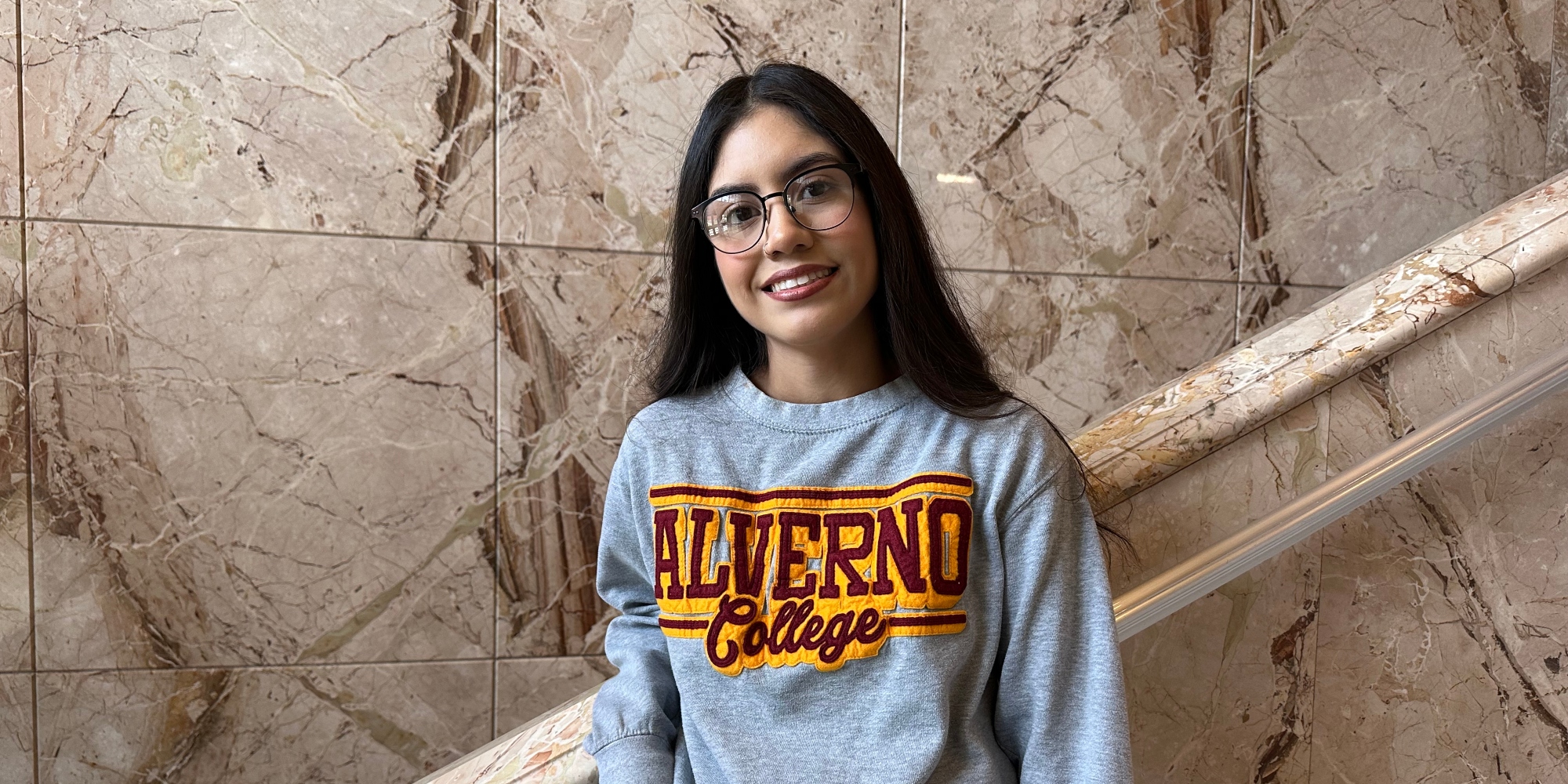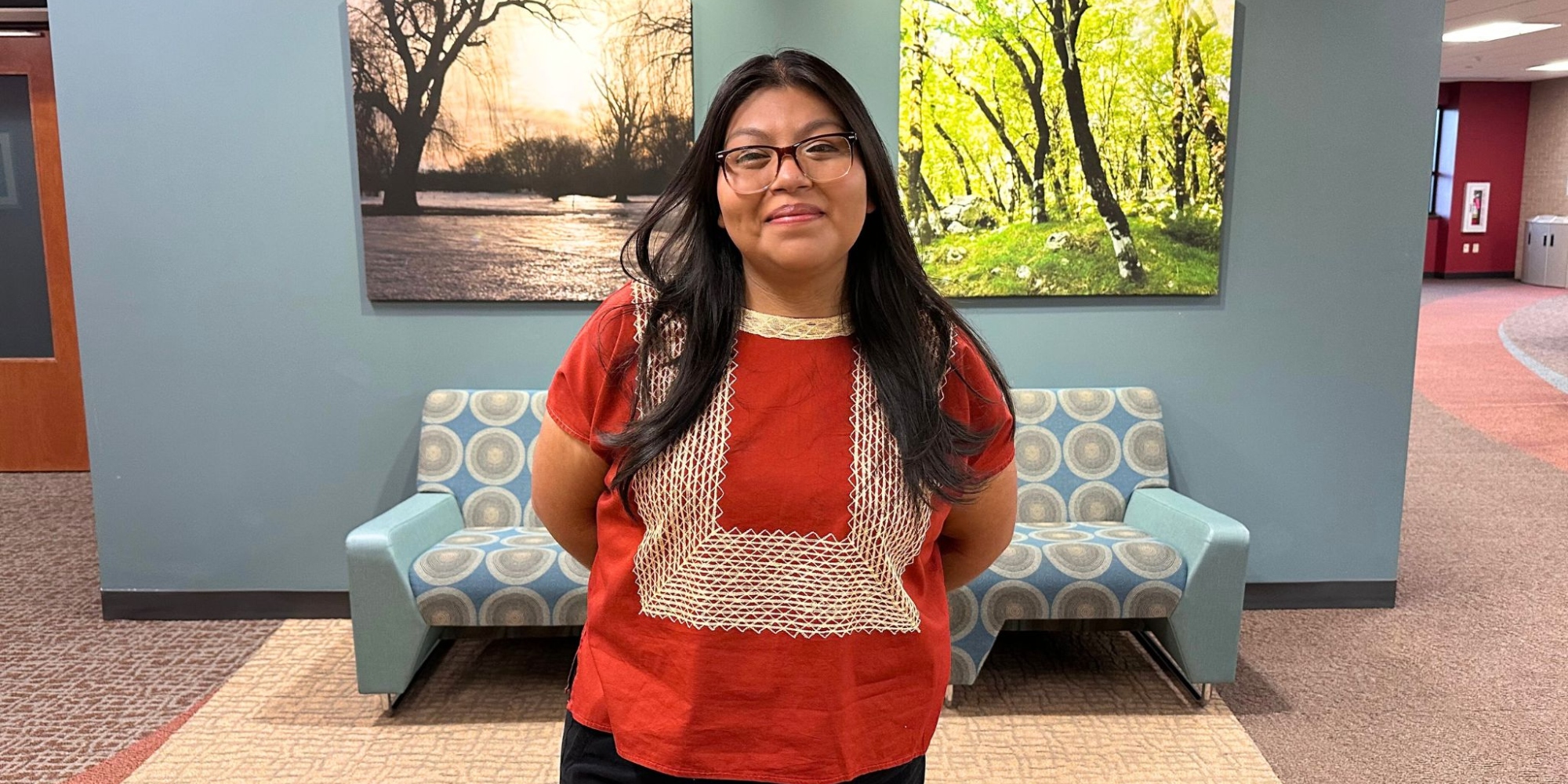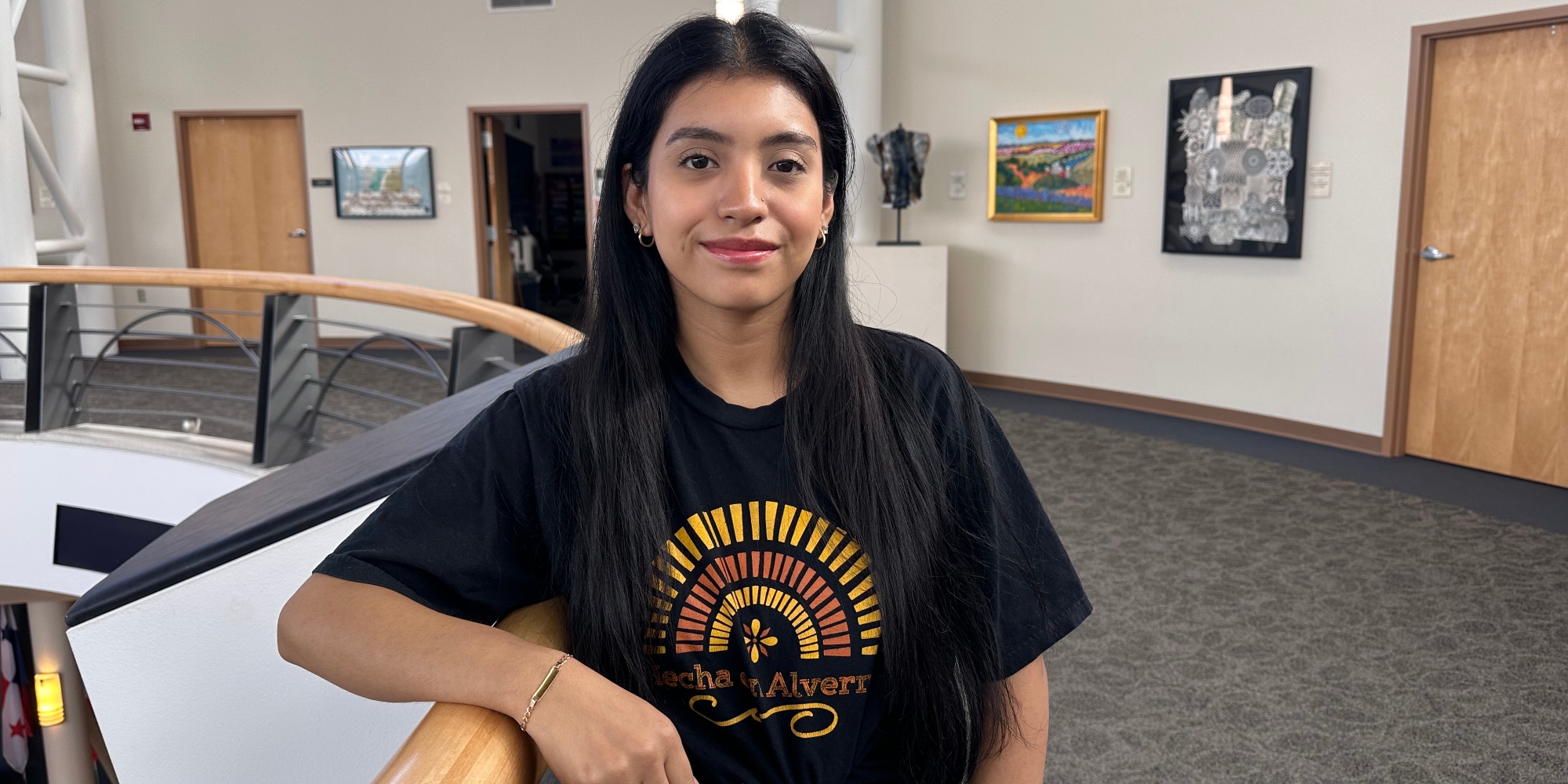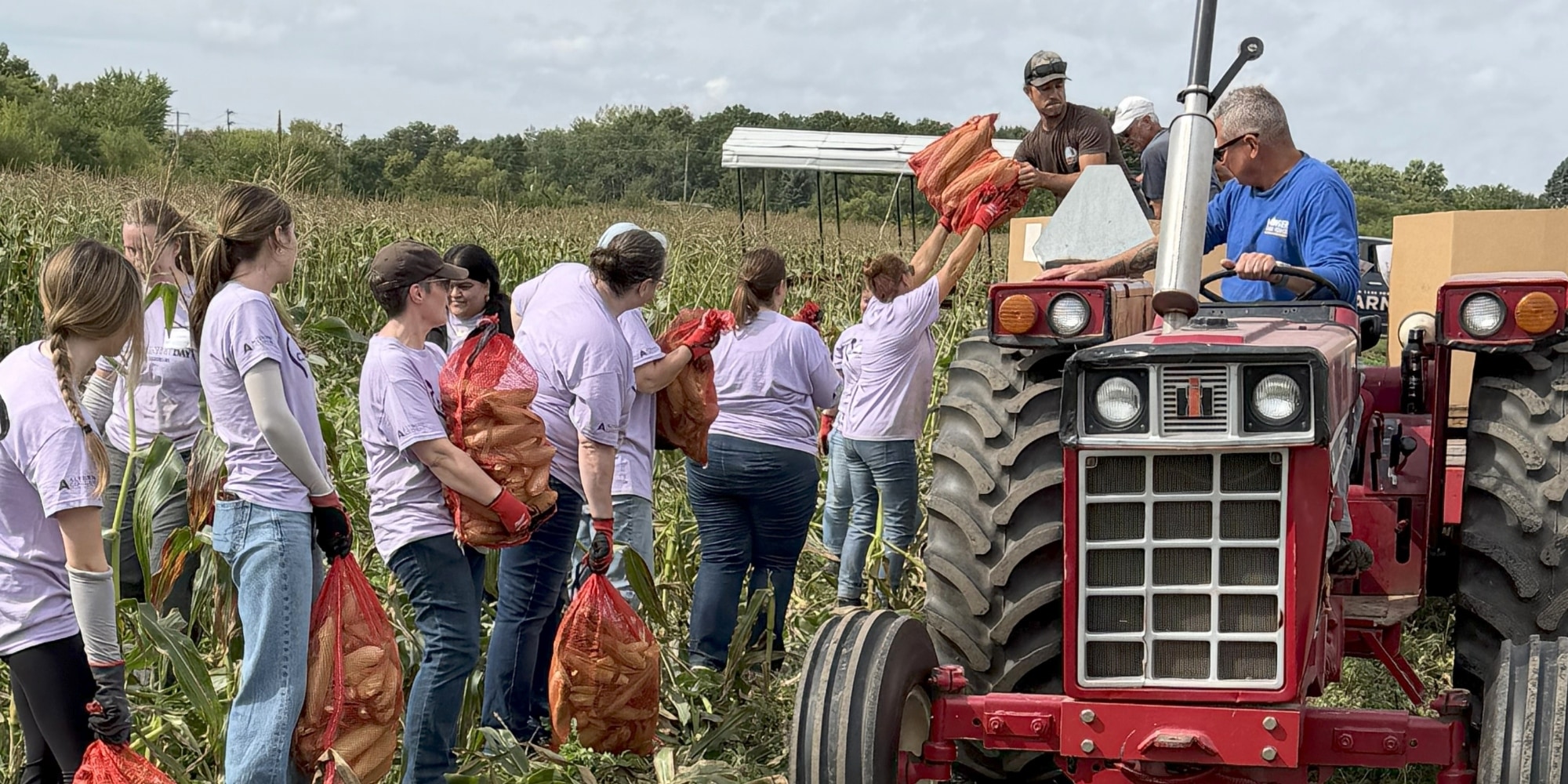The spread of COVID-19 has been accompanied by another pandemic – the rampant proliferation of misinformation about the virus, its origination, prevention and treatment methods, and vaccines.
While social media and digital communication methods speed up and expand the dissemination of misinformation, the technology itself isn’t the cause. Rather, as Lindsey Harness, an associate professor of communication and technology, reminds us, these platforms are tools through which we engage our natural tendency to seek answers.
“When we’re scrambling because something has really shifted our world in a way that makes us scared, we will grab at whatever information is available,” Harness says. “Often that means that we won’t take the time to do the due diligence that we should in order to verify that information.”
Given the ease with which incorrect information can spread, it is imperative that today’s students learn how to separate fact from fiction. When presented with a claim, how do they evaluate its credibility? How can they pinpoint and strip away the values and partisan stances that underlie that claim, and determine whether this aligns with their own values? And how do they then draw conclusions from this work in order to make an informed, ethical decision about what to believe, whom to support, how to act?
To engage with information in this way is the cornerstone of a liberal arts education and, therefore, a cornerstone of an Alverno education.
“The liberal arts are even more important now because we are seeing such a radical transformation of the way in which markets and communities interact with each other, the way in which individuals are exposed to one another in a global setting, and the way in which our global community is now a click of a button from being fully immersed in different cultural practices and different perspectives,” says Joseph Foy, vice president for Academic Affairs. “And with that radical transformation, it becomes really important for an individual to have the skills to interpret information, to analyze information and to apply information.”
Specifically, Alverno’s 8 Abilities provide a comprehensive and solid foundation to support students’ growth as critical consumers of information and members of our civic society.
“The 8 Abilities give us a framework for having a productive conversation,” says Harness. “Let’s analyze the situation. Let’s talk about trying to understand where we’re both coming from. Let’s talk about what evidence is available. The 8 Abilities serve as a foundation for a healthy conversation.”
This foundation building takes place in every Alverno course, across all academic disciplines. Keep reading to explore what this looks like in communication, education, health care, social work and STEM.
COMMUNICATION
Course title: Emerging Technologies
Instructor: Lindsey Harness, PhD, associate professor of communication and technology
Course description: “The class is a call to action. I invite the students to think of who they are going to be as users of technology and leaders in their community in terms of technology,” including analyzing technology’s unintended consequences, identifying its problem-solving benefits and thinking through ethical decision making.
Featured abilities: “Students have to develop skills in analysis, problem solving, communication and valuing in order to evaluate and articulate the benefits and consequences of technology in a way that is helpful for society.”
The projects:“They’re doing a journal, observing how they use technology on a daily basis. This week, I asked them to write down the technology they use the most often. Then, I invited them to think about why they’re using it. What role does it play in their lives? What value does it represent? Once we do that for ourselves, we can invite other people to start thinking more critically about how they’re using technology.”
“Another assignment is to write a personal code of conduct around their technology use, based on what they learn throughout the semester. I hope they will refer to this once they leave Alverno and that it gives them a framework to navigate life and their use of technology.”
The impact: “They come to understand that every time you use a technology or every time a new technology comes into society, there is a consequence, but there’s also a benefit.”
EDUCATION
Course title: Engagement in Teaching, Learning and Assessing
Instructor: Mindy Kramer, ’10, MA ’13, assistant professor of education
Course description: “We focus on the importance of gaining knowledge about the learners, the subject matter, and a strong understanding of teaching practices. This week, we focused on creating engaging activities that bring joy to the learning process. The students analyzed a selection of articles about engaging lesson plans and reported back to the class. This allowed them to view reputable sources while also having a choice.”
Featured abilities and skills: Integrative interaction, coordination, diagnosis, analysis, problem solving, social interaction and communication
The project: “They create four lesson plans that will teach, observed by a classroom teacher and Alverno supervisor. COVID has made that challenging, so they’ve developed creative solutions such as teaching lessons to each other via video.”
“For their final project, they create a lesson plan and a presentation for their peers, and they discuss what they learned about themselves as developing teachers as well as the impact they can have on student learning. They connect their work to the Alverno abilities and Wisconsin state teaching standards. They demonstrate so much growth.”
The impact: “I want them to have strong and effective lesson planning skills, but I also want them to feel empowered by the knowledge they’ve gained throughout the course to advocate for their learners. I want them to be confident ― confident in where they’re at and confident in the growth that’s yet to come. And I want them to understand how important self-reflection is. Our students spend a lot of time self-reflecting on their practices, which really helps them grow as professionals.”
HEALTH CARE
Course title: Practice-Based Inquiry
Instructor: Stefani Magnowski, DNP, assistant professor of nursing
Course description: Students in the Doctor of Nursing Practice (DNP) program will “acquire skills to explore and synthesize research findings necessary for addressing their specific health care questions or problems” related to their culminating scholarly project.
Featured skills: “We look at different ways of addressing problems through translational research methodologies to influence outcomes. How do you interpret data and evidence to identify the level of impact needed for program needs, planning or implementation? Or, once you identify a problem needing to be addressed, how do you best go about solving that problem while maintaining rigor throughout the process?”
The project: “They’re going to be formulating a scholarly project that has an impact within their concentration, either at the organizational level or direct care level. In this course, they’re going to be identifying their research question, starting a preliminary literature review, and coming up with ideas for methodologies of addressing their research question.”
The impact: “We have patients who are a lot more acute, and the costs of receiving care are higher. There is also a lot of waste within the health care system today, reducing the overall value of services provided. This course helps students to develop a skillset and a level of awareness to address some of those complex problems that impact individual patients to whole health care systems. They should be able to evaluate and understand the data that’s out there in order to make data-informed decisions. At the end of the day, these skills should be able to provide DNP-prepared nurses with the ability to continuously improve health care outcomes at all levels.”
SOCIAL WORK
Course title: Social Policy
Instructor: Ke’Andra L. Hagans, MSW, instructor of social work
Course description: “As social workers, it’s quite common for us to consider the direct practice of social work. We’re going to come in and do assessments. We’re going to empower families. This course emphasizes the power of policy and the prevalence of it in the work that we do.”
Featured abilities: Analysis, problem solving, communication, effective citizenship
The project: “Students will choose a policy or program of interest, study it using an analysis model, and submit a 10-page (or more) paper. They will evaluate the strengths and weaknesses of the policy. Does it do what it’s supposed to? How is it supported financially? Does it represent innovation? Does the program meet the need it was designed to meet? Can it evolve as times and situations change? Does it address important social justice issues, or does it serve as a detriment to social justice?”
The impact: “I’m hoping that they have a better appreciation for the impact of policy. I remember being an undergraduate student; it wasn’t until I was working for a program that I started to observe direct consequences related to policy. If I could just plant that seed that policy and the implications of policy are around us all day, every day, then I did my job.”
STEM
Course title: The End of Nature
Instructor: Chris Young, PhD, professor of biology
Course description: Students from all majors explore the topic of climate change, especially “the geographic, political, and economic opportunities and challenges related to climate in our global future.”
Featured abilities: developing a global perspective, effective citizenship
“This is a big topic, and we’ve got only one semester. We’re not going to solve this. But we do want to move a step closer.”
The project: “First, they choose a country, learn about its geography and how climate change is affecting that place. We talk about reliable, credible information, and I show them how to find and evaluate resources.”
“The next part of the project is for them to identify a nongovernmental organization (NGO) that’s focused on climate change and is actively working to improve conditions for people in that country. The third part combines economics and politics. They do research and describe how their country is functioning. We also review the U.S. system of government. The students see how government and NGOs play a big role.
“At the end of the course, they combine all three parts and do a public presentation, sharing the basic impact of climate change on their country, the responses of NGOs and the ways that these efforts are ultimately transforming some of the government agencies or regulations in place.”
The impact: “Students realize that change is possible. They get inspired. They see their agency, not just as effective citizens here in Milwaukee, but as members of a global collective that has a lot more power.”
This article appears in the spring/summer 2021 issue of Alverno Magazine.





